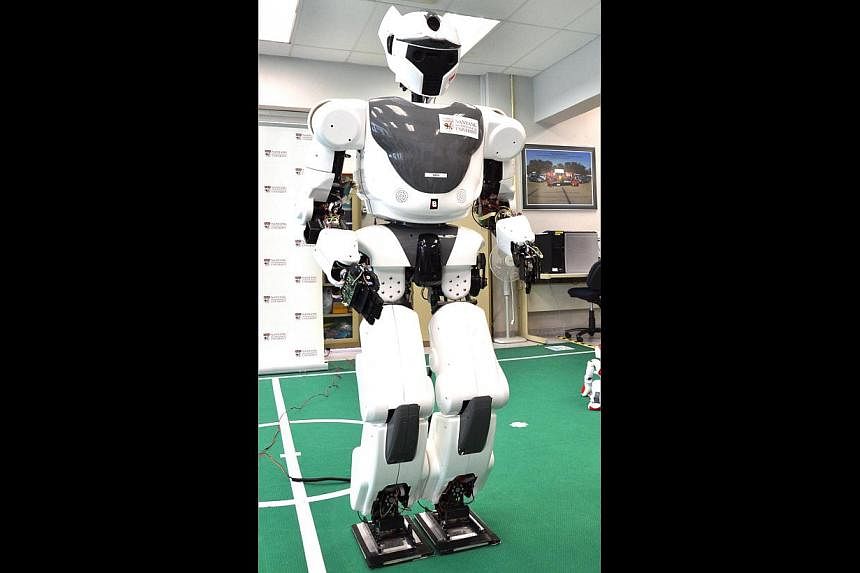Just over 50 years ago, the cover of Life magazine breathlessly declared the "point of no return for everybody". Above that stark warning, a smaller headline proclaimed, "Automation's really here; jobs go scarce".
As events unfolded, it was Life that was nearing the point of no return - the magazine suspended weekly publication in 1972. For the rest of America, jobs boomed; in the following decade, 21 million Americans were added to the employment rolls.
Throughout history, aspiring Cassandras have regularly proclaimed that new waves of technological innovation would render huge numbers of workers idle, leading to all manner of economic, social and political disruption. As early as 1589, Queen Elizabeth I refused a patent on a knitting machine for fear it would put "my poor subjects" out of work. In the 1930s, the great John Maynard Keynes predicted widespread job losses "due to our discovery of means of economising the use of labour outrunning the pace at which we can find new uses for labour".
So far, of course, they've all been wrong.
But that has not prevented a cascade of shrill new proclamations that - notwithstanding centuries of history - "this time is different": The technology revolution will impair the livelihoods of millions of Americans. Even The Economist has weighed in, with a special section declaring on its cover that robots are the "immigrants from the future".
Let's go back to first principles. Call it automation, call it robots, or call it technology; it all comes down to the concept of producing more with fewer workers. Far from being a scary prospect, that's a good thing. Becoming more efficient (what economists call "productivity") has always been central to a growing economy. Without higher productivity, wages can't go up and standards of living can't improve. That's why, in the sweep of history, the human condition barely improved for centuries until the early days of the Industrial Revolution, when transformational new technologies (the robots of their day) were introduced.
Consider the case of agriculture, after the arrival of tractors, combines and scientific farming methods. A century ago, about 30 per cent of Americans laboured on farms; today, the US is the world's biggest exporter of agricultural products, even though the sector employs just 2 per cent of Americans. The trick is not to protect old jobs, as the Luddites who endeavoured to smash all machinery sought to do, but to create new ones. And since the invention of the wheel, that's what has occurred.
When was the last time you talked to a telephone operator? And yet, if rotary dial telephones hadn't been invented, millions of Americans would currently be wastefully employed saying "Central" every time someone picked up a telephone receiver. More recently but similarly, the Internet has rendered human directory assistance nearly extinct.
Of course, I can't prove that the impact of some new wave of technological innovation won't ever upend thousands of years of history. But it hasn't happened yet. If technology were supplanting jobs, productivity - the measure of each worker's output - would be rising sharply. However, that's not happening. In fact, productivity growth in recent years has been sluggish (an even scarier concern). That has led to fears about the opposite problem, the possibility that technological advances won't be robust enough to provide the productivity increases needed to sustain income growth.
I don't buy that either. As recently as 30 years ago, few of us would have foreseen the information technology revolution, with the vast gains in efficiency that have flowed from it. To be sure, technology has changed the nature of work - more specialised training is now required for many jobs - and consequently, it has contributed to the sharp rise in income inequality.
But technology is not the prime culprit behind America's languid employment and income growth. That honour belongs to globalisation, and particularly the ability of companies to make do with far less expensive and increasingly skilled labour in developing countries.
To address these very real challenges, Americans should be embracing technology, not fearing it. That means educating and training Americans to perform the more skilled jobs that cannot yet be performed by workers in developing countries. And let's not forget that Americans are world leaders in industries like education, medicine, technology, entertainment and yes, even financial services.
Many of these sectors generate skilled jobs - nurses, who are in high demand, earn an average of US$65,000 (S$81,000) a year - and even substantial export dollars. Of course, not every worker can be retrained, and so we must help those who aren't suitable for the new jobs through more robust social welfare programmes.
We mustn't become a nation of robot worriers. That will merely guarantee that our incomes and standards of living will continue to stagnate.
NEW YORK TIMES

